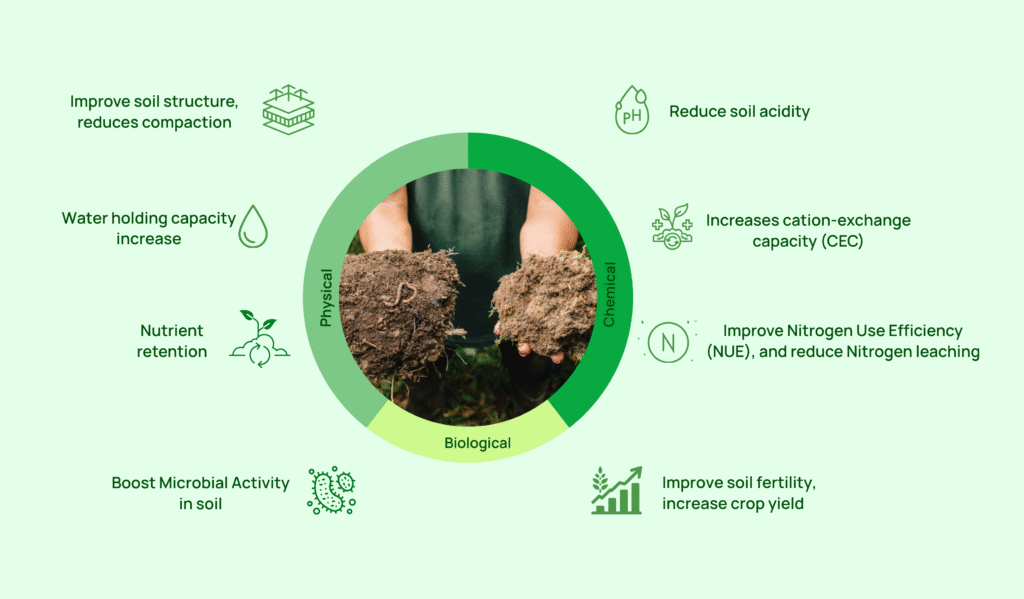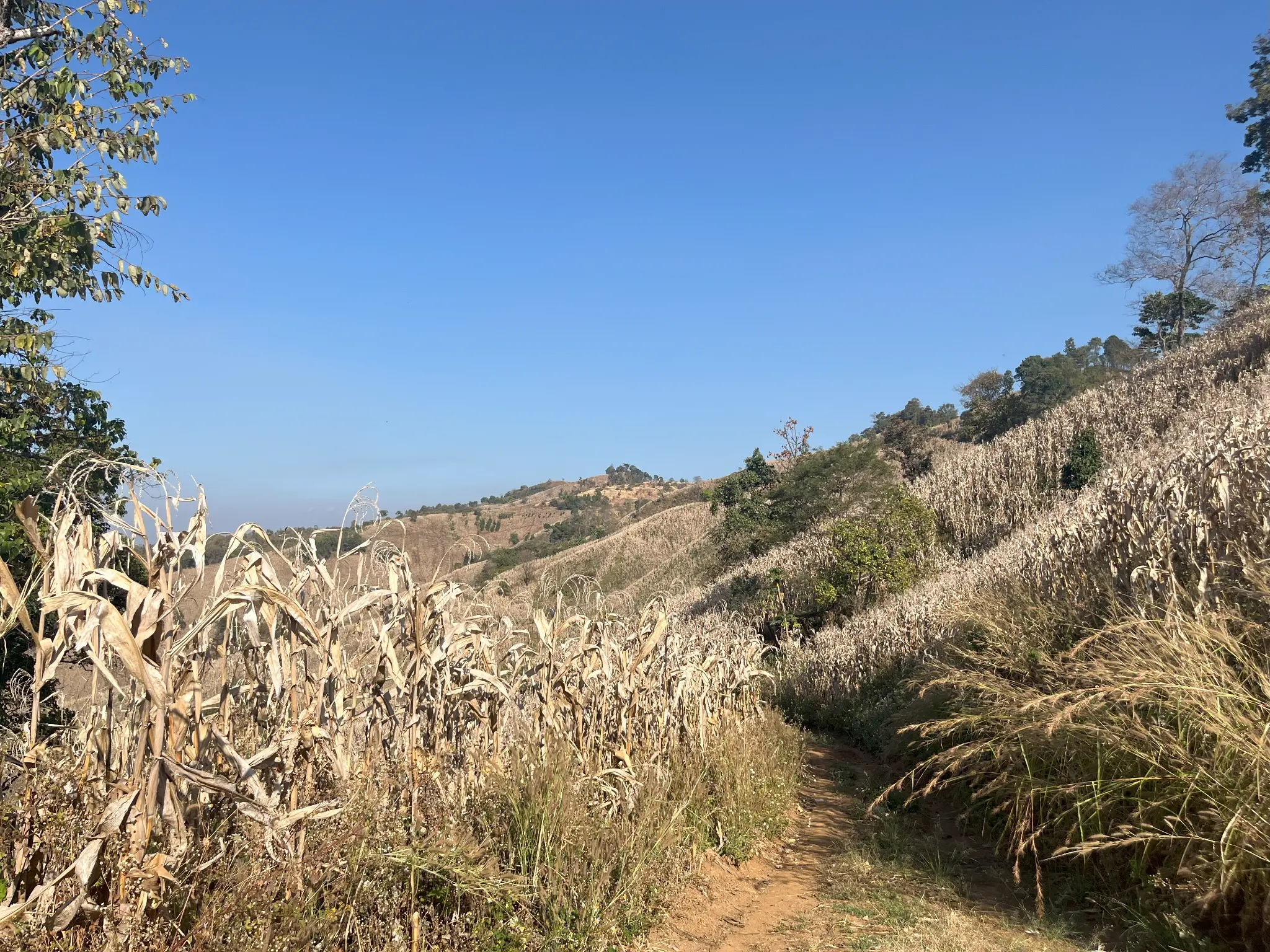We’re scaling across Southeast Asia
Enable Earth aims to expand production at the first facility and develop new facilities across Southeast Asia.
Scalable • Traceable • High Quality
Our mission is to transform landfilled and burnt agricultural waste into high-value
carbon-negative products with a scalable and impactful solution for Southeast Asia
Converting agricultural wastes to biochar and generating high-quality carbon removal credits

Digital Farmer Platform with Smart Collection System
We work directly with smallholder farmers through our digital platform and biomass collection logistics and transportation, taking the agricultural residues right from where they are left unutilized.

Biochar and Carbon Removal from Continuous Pyrolysis process
We transform agricultural residues into stable biochar, permanently removing carbon dioxide from the atmosphere.

Regenerative Agriculture
Biochar is an integral part in this holistic approach to agricultural land management to restore soil health and overall natural ecosystems, and increase crop yield in the long run.

Renewable source of heat
Excess heat from our process can replace fossil-fueled source of industrial heat, which contributes to 30% of total industrial emissions in Southeast Asia.
Improve soil health, and restore natural ecosystems sustainably

Creating positive social, economic and environmental impact in SE Asia

Clean Air
Reduce PM2.5 pollution and improve public health

Additional Income
Provide farmers with new revenue streams

Knowledge Transfer
Create sustainable jobs and innovation in local communities

Circular Economy
Promote responsible agriculture and circular economy practices
Our First Flagship Project in Northern Thailand

Project Location
![]() Wiang Pa Pao district, Chiang Rai
Wiang Pa Pao district, Chiang Rai![]() Industrial biochar production facility
Industrial biochar production facility![]() Processing corn residues
Processing corn residues![]() Operational by end of 1Q 2026
Operational by end of 1Q 2026

3,000 tons/year
Corn residues removal

700 tons
Biochar production

1,300 tons
Carbon Removal Credits

21,200 trees
Equivalent to planting
Enable Earth aims to expand production at the first facility and develop new facilities across Southeast Asia.

55,000
tons/year
Biomass processing by 2027

25,000
CO2e/year
Carbon removal capacity
Join us in transforming agricultural waste into sustainable solutions for a cleaner future.
Ready to join the carbon removal revolution? Let’s discuss how we can work together
Enable Earth
Email : contact@enableearth.eco

Enable Earth
Transforming agricultural waste into sustainable solutions for Southeast Asia.
© 2025 EnableEarth. All rights reserved.